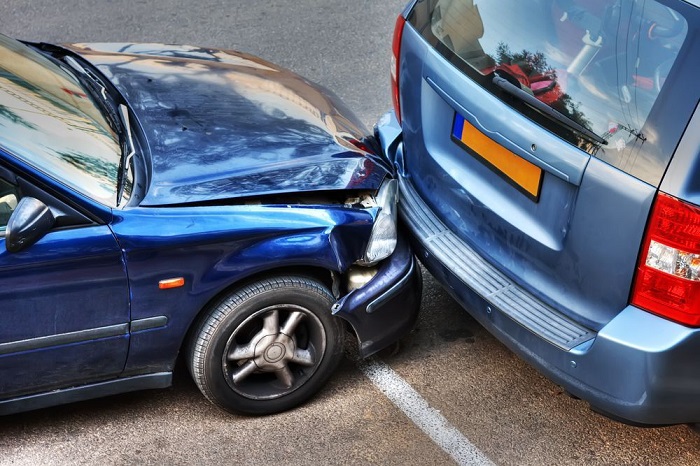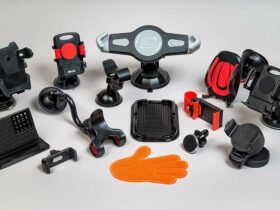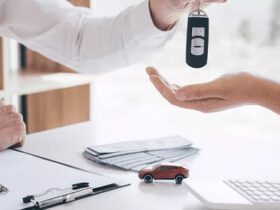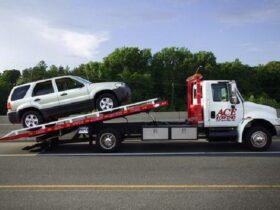Being involved in a car accident can be stressful, especially if it wasn’t your fault. The aftermath of an accident can leave you unsure of the following steps, particularly when dealing with insurance claims, potential injuries, and legal procedures. Knowing what to do after a car accident that wasn’t your fault is crucial to protecting your rights and receiving the compensation you deserve.
The steps you take immediately after the accident can significantly impact the outcome of your claim. From documenting the scene to contacting your insurance provider, every detail matters. In this article, we’ll guide you through the essential steps you need to take after an accident that was not your fault, along with tips on how to protect your interests and get the compensation you’re entitled to.
What to Do After a Car Accident Not Your Fault?
After a car accident, exchange insurance information with the other driver. If they have insurance, file a claim with their company. Suppose they don’t, use your own insurance policy. Keep records, including photos of the scene and any police reports, to support your claim.
The Process of Filing a Claim with the Other Driver’s Insurance
When you’re not at fault in a car accident, one of the first things you should do is file a claim with the other driver’s insurance company. Here’s how to proceed:
- Exchange Information at the Scene
- Take a photo of the other driver’s insurance card, driver’s license, and vehicle details.
- If they don’t have an insurance card, write down their name, phone number, insurance company, and policy number. Give them your information as well.
- File the Claim with the Other Driver’s Insurance
Once you get home, contact the other driver’s insurance company to report the accident. Be sure to provide the accident details, the police report (if available), and any evidence you gathered at the scene. - Expect Possible Delays or Denials
The other driver’s insurance might dispute liability, claim that both drivers were at fault, or say they don’t have enough insurance to cover all costs. If this happens, ask for a detailed written explanation and consider involving your own insurance company or a legal professional.
For legal advice and assistance with complex claims, consulting Verisona Law can ensure you get the compensation you’re entitled to without delays or disputes.
Common Issues When Filing a Claim with the Other Driver’s Insurance
Filing a claim with the other driver’s insurance company can be difficult. Here are some of the most common problems you may encounter:
Denial of Fault
The insurance company may claim that the other driver wasn’t at fault, which means they won’t cover your costs. This is common when there is a dispute over who caused the accident.
- What to do: Ask for a detailed explanation in writing and provide any additional evidence, such as photos or witness statements, to back up your claim.
Shared Fault
Sometimes, the insurance company might argue that both drivers were at fault, and they will try to make you pay a portion of the damages.
- What to do: If you believe you weren’t at fault, gather evidence to dispute this claim and present it to the insurance company.
Insufficient Insurance Coverage
The other driver may not have enough insurance to cover all your damages, or they might not be insured at all.
- What to do: In this case, your own insurance policy, specifically uninsured/underinsured motorist coverage, can help cover your expenses.
Slow Response or Non-communication
Insurance companies can be slow to respond, and sometimes they may not return your calls or emails.
- What to do: Follow up regularly and keep a record of all your communications with the insurance company.
Face any roadblocks during the claims process. A Law Firm SEO Expert can help you locate a reputable attorney who specializes in car accident cases and can assist in navigating the claims process effectively.
How to Use Your Own Insurance After an Accident?
If you encounter problems with the other driver’s insurance or if they are uninsured, you can file a claim with your own insurance company. Here’s what to know:
- Collision Coverage: If you have collision coverage, it will pay for repairs to your vehicle after an accident, regardless of who is at fault.
- Uninsured/Underinsured Motorist Coverage: If the other driver doesn’t have insurance or doesn’t have enough insurance to cover your costs, uninsured or underinsured motorist coverage will help. This coverage pays for car repairs, medical bills, and other accident-related expenses.
- Medical Payments and Personal Injury Protection: If you have medical payments or personal injury protection coverage, these will help cover medical bills for any injuries sustained in the accident.
- Recovering Your Deductible: If your insurance company covers your costs and later recovers money from the other driver’s insurance, they may reimburse you for your deductible.
When to Seek Legal Help After an Accident
In some cases, you may need to involve a lawyer, especially when there are complications with the insurance companies or the at-fault driver. Consider legal help if:
- Insurance Denials: If the other driver’s insurance company denies your claim, or if your own insurer won’t pay for your repairs or medical bills, a lawyer can help you navigate the legal process and challenge the insurance companies.
- Serious Injuries: Suppose you have significant injuries that require long-term care or surgery. In that case, a lawyer can ensure that you are compensated for both current and future medical costs, lost wages, and pain and suffering.
- Uninsured/Underinsured Drivers: If the other driver doesn’t have insurance or doesn’t have enough coverage, a lawyer can help you explore options for obtaining compensation through your own insurance or legal channels.
The Importance of Documentation After an Accident
To maximize your chances of a successful claim, you must gather and document everything related to the accident. This includes:
- Photographs of the Accident Scene
Take clear photos of the scene, vehicles, road conditions, and any damage. - Witness Statements
If there are any witnesses to the accident, ask for their contact information and statements. - Police Reports
If the police were involved, get a copy of the accident report, as it will be an essential piece of evidence in your case. - Medical Records
Keep track of any medical treatments you receive for injuries sustained in the accident. This documentation will be vital when calculating medical expenses.
Final Remarks
What to do after a car accident, not your fault, involves several key steps to ensure you’re fairly compensated for any damage or injuries. Start by filing a claim with the other driver’s insurance company and documenting the scene. If issues arise, don’t hesitate to contact your own insurance provider or seek legal assistance. Following these steps will help you navigate the often complex process of handling a car accident you weren’t at fault for.
FAQ’s
What happens if the other driver doesn’t have insurance?
If the other driver is uninsured, your uninsured motorist coverage will pay for your damages and medical expenses. If you don’t have this coverage, your own insurance might cover some or all of your costs.
Can I still file a claim if I don’t have collision coverage?
Yes, you can still file a claim with your own insurance if the other driver is at fault and you have comprehensive or uninsured motorist coverage.
How long do I have to file a claim after an accident?
Each state has its own statute of limitations for filing insurance claims, but it’s generally advisable to report the accident to your insurance company as soon as possible.
What if the other driver’s insurance company refuses to pay me?
If the insurance company refuses to pay, you can ask for a detailed written explanation. If they continue to deny your claim, consider consulting an attorney for legal advice.
Do I need to hire a lawyer after a car accident?
If the insurance companies are giving you trouble or if you sustained serious injuries, hiring a lawyer can help you navigate the legal process and ensure you get the compensation you deserve.











Leave a Reply